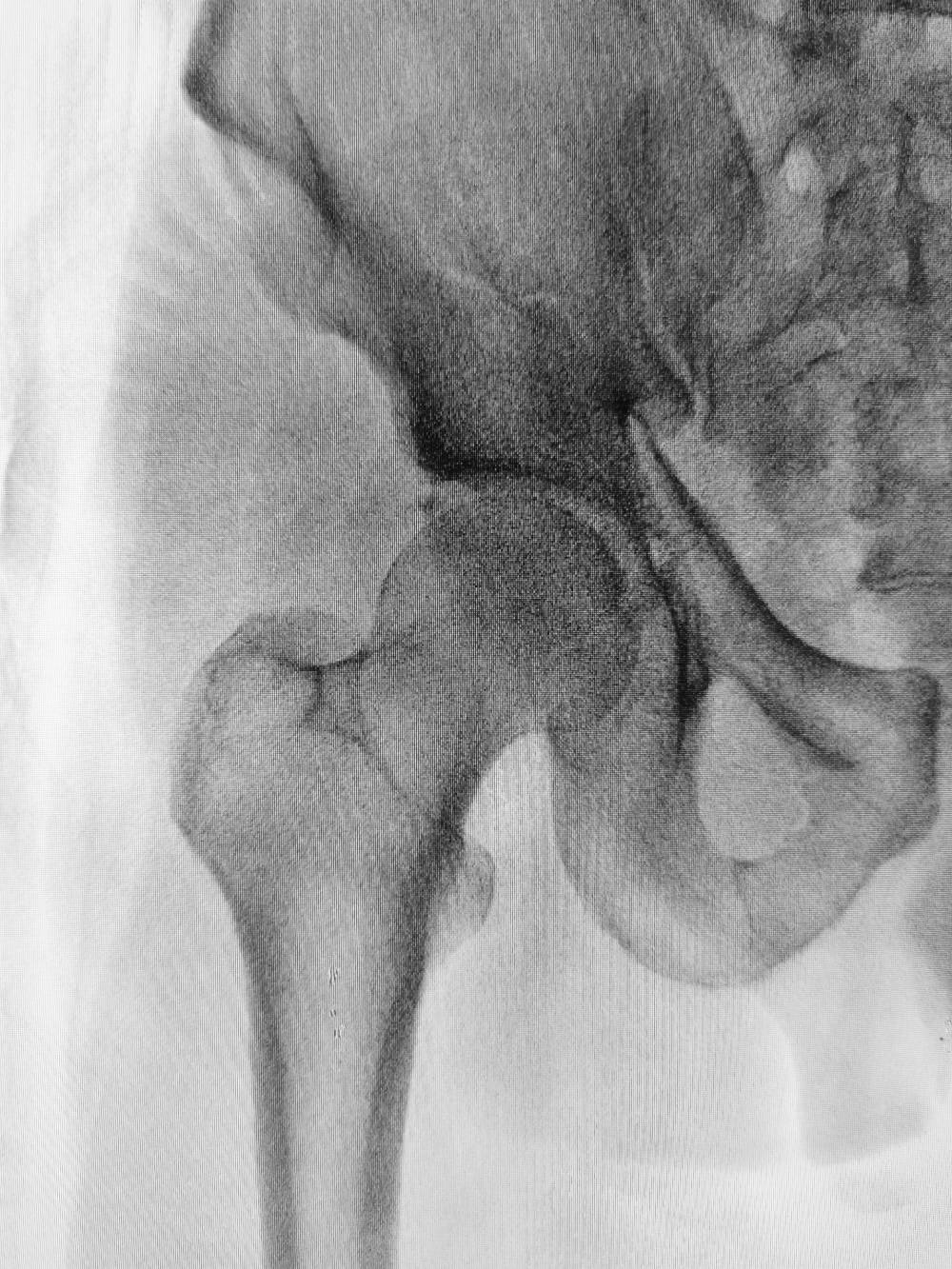A common condition that affects many people across the world is osteoarthritis. This condition results from gradual degeneration of cartilage due to wear and tear on joints, which may cause pain and stiffness in the affected areas. Some key risk factors for osteoarthritis include being overweight or obese, having a previous bone or joint injury, genetic predisposition, age (over 40 years), and some medical conditions including diabetes. Treatment options for this condition vary depending on the severity of symptoms and involve use of medications, physical therapy, weight loss (if needed), surgery, or lifestyle changes such as doing regular exercise and stretching exercises. With proper treatment and management strategies, one can manage their symptoms effectively while living a healthy life.

There are many different types of osteoarthritis, and the most common ones include degenerative joint disease, primary osteoarthritis, post-traumatic arthritis, hereditary predisposition to OA. Furthermore, it is estimated that approximately 30 million people in the United States currently have osteoarthritis. Therefore, it is important for those suffering from OA to seek proper diagnosis and establish an effective treatment plan to ensure optimal management of their symptoms.
The first step in managing this condition effectively involves identifying the underlying cause. For example, if a previous injury or accident contributed to your current OA symptoms, then physical therapy can help improve range of motion and flexibility in the joint area as well as reduce inflammation. Some other treatment options may include taking medications such as non-steroidal anti-inflammatory drugs (NSAIDs) or COX-2 inhibitors to reduce inflammation and pain, or using supplements like glucosamine and chondroitin to help restore collagen in the joint area. Additionally, losing weight if you are overweight is another important factor in managing OA symptoms. You can also incorporate lifestyle changes into your daily routine such as doing regular physical activity, stretching exercises, and following an anti-inflammatory diet.
If you suspect that you have osteoarthritis and would like to establish a treatment plan for this condition, it is recommended that you speak with your doctor first to discuss the different treatment options available. With proper management strategies and adequate support from healthcare providers and family members, you can effectively manage your symptoms and live a happy, healthy life.
Stages of OA
There are various stages of osteoarthritis, and these can vary depending on the severity of symptoms. The most common stages include early-stage OA, which includes mild to moderate joint pain that is often manageable with lifestyle modifications such as losing weight, doing regular exercise, and following an anti-inflammatory diet. Another stage of OA is moderate to advanced osteoarthritis, which may require physical therapy or medication management in addition to lifestyle changes. In severe cases where these treatment options do not provide adequate relief from OA symptoms, surgery may be required to repair damaged joints or replace worn out parts. It is important to seek proper diagnosis and establish a personalized treatment plan based on your individual needs in order to effectively manage your osteoarthritis symptoms.
Managing Osteoarthritis
There are many different strategies you can use to manage your osteoarthritis symptoms and prevent further joint damage. Some of the most important steps include losing weight if you are overweight, doing regular exercise to improve flexibility and strengthen the affected joints, following an anti-inflammatory diet, incorporating lifestyle changes such as spending time outdoors or going for walks in nature, and getting adequate rest each night. Additionally, it may be helpful to seek support from family members or other people who have had similar experiences with OA in order to reduce feelings of isolation and depression that often accompany this condition. Finally, talking to your doctor about various treatment options may also be beneficial in ensuring that you get the care and support you need to manage your OA symptoms effectively.
Boswellia herb
One of the many effective treatment options for osteoarthritis is Boswellia herb. This plant extract has been shown to be highly effective in reducing inflammation, pain, and stiffness associated with this condition. Some other benefits of Boswellia include boosting immunity, promoting healthy digestion and nutrient absorption, and improving joint flexibility. If you are interested in taking Boswellia to manage your OA symptoms, it is recommended that you speak with your doctor first to discuss whether this natural remedy will be right for you.
Curcumin
Another promising natural treatment for osteoarthritis is curcumin. This compound, which is found in the spice turmeric, has been shown to be highly effective in reducing inflammation and pain associated with this condition. Curcumin has also been shown to improve joint function and help prevent further damage to the joints. If you are interested in taking curcumin to manage your OA symptoms, it is recommended that you speak with your doctor first to discuss whether this natural remedy will be right for you.
CBD oil
CBD oil is another natural remedy that has shown promise in treating osteoarthritis. This compound, which is derived from the cannabis plant, has been shown to be effective in reducing inflammation and pain associated with OA. Additionally, CBD oil has also been shown to be effective in promoting a healthy inflammatory response, supporting the immune system and reducing joint stiffness. If you are interested in taking CBD oil to manage your osteoarthritis symptoms, it is recommended that you speak with your doctor first to discuss whether this natural remedy will be right for you.
While there is currently no cure for OA, with proper management strategies and adequate support from healthcare providers and family members, you can effectively manage your symptoms and live a happy, healthy life. Some of the most important steps include losing weight if you are overweight, doing regular exercise to improve flexibility and strengthen the affected joints, following an anti-inflammatory diet, incorporating lifestyle changes such as spending time outdoors or going for walks in nature, and getting adequate rest each night. Additionally, it may be helpful to seek support from family members or other people who have had similar experiences with OA in order to reduce feelings of isolation and depression that often accompany this condition. Finally, talking to your doctor about various treatment options may also be beneficial in ensuring that you get the care and support you need to manage your osteoarthritis symptoms effectively.
While there is currently no cure for osteoarthritis, the condition can be effectively managed through a variety of different treatment options. Some of the most effective management strategies include losing weight if you are overweight, doing regular exercise to improve flexibility and strengthen the affected joints, following an anti-inflammatory diet, incorporating lifestyle changes such as spending time outdoors or going for walks in nature, and getting adequate rest each night. Additionally, it may be helpful to seek support from family members or other people who have had similar experiences with OA in order to reduce feelings of isolation and depression that often accompany this condition. Finally, talking to your doctor about various treatment options may also be beneficial in ensuring that you get the care and support you need to manage your osteoarthritis symptoms effectively.
Weight loss and diet
One of the most important management strategies for osteoarthritis is losing weight if you are overweight. Excess weight puts additional stress on the joints, which can worsen osteoarthritis symptoms. Additionally, carrying excess weight can also lead to other health problems such as diabetes and heart disease. For these reasons, it is important to speak with your doctor about a healthy weight loss plan that will work for you.
Regular exercise
Another important management strategy for osteoarthritis is regular exercise. Exercise can help improve joint function, flexibility, and range of motion. Additionally, exercise can also help strengthen the muscles around the joints, which can help to protect the joints from further damage. It is recommended that people with osteoarthritis speak with their healthcare provider about which types of exercise are right for them, as each person will require a different exercise program based on their individual needs and goals.
Anti-inflammatory diet
Following an anti-inflammatory diet can also help to manage the symptoms of osteoarthritis. An anti-inflammatory diet is focused around eating foods that are low in sugar and refined carbohydrates, while incorporating healthy fats such as olive oil and omega 3 fatty acids from fish or eggs. Additionally, this type of diet tends to be high in vegetables, fruits, whole grains, lean meats or plant proteins such as beans and lentils. By following an anti-inflammatory diet, you can reduce your risk of developing chronic inflammation associated with diseases like osteoarthritis. However, it is important to speak with your healthcare provider about whether this type of diet would be appropriate for you, as certain people may require a different dietary plan based on their individual health needs.
Lifestyle changes
In addition to following an anti-inflammatory diet and exercising regularly, incorporating some other lifestyle changes into your routine may also provide symptom relief from osteoarthritis. For example, spending time outdoors or going for walks in nature can help reduce feelings of isolation and depression that often accompany this condition. Additionally, adequate rest each night can help your body recover more effectively between activities, which will allow you to get the most out of your exercise program while minimizing pain and fatigue associated with OA. Finally, talking to your doctor about various treatment options may also be beneficial in ensuring that you get the care and support you need to manage your osteoarthritis symptoms effectively.



